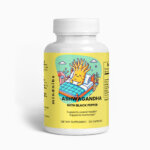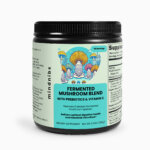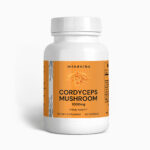
“Beyond the Hype: Unveiling the Truth About Superfoods in Supplements”
Are superfoods in supplements worth the hype? While some may swear by the nutritional benefits of adding superfoods to their diet, others argue that it’s just a marketing tactic. In this article, we will dive deeper into the truth about superfoods in supplements and unveil whether they live up to the claims or not. We will refer to various sources, such as a study on the nutritional impact of broccoli[1] and an article from Harvard discussing the downsides of labeling certain foods as “superfoods”[2]. Our aim is to provide you with an informed perspective on superfoods in supplements, leaving you empowered to make the best decisions for your health.
1. Introduction: The Superfood Trend and Its Impact on the Supplement Industry
The emergence of the superfood trend has played a significant role in the supplement industry’s growth and development. Superfoods are nutrient-rich foods that offer a host of health benefits, such as lower cholesterol, stronger immunity, and increased energy levels. [1] In turn, consumer preferences have shifted towards dietary supplements that contain superfood ingredients, such as acai berries, chia seeds, and spirulina. As a result, the supplement industry is expected to grow at a compound annual growth rate (CAGR) of 9%, reaching USD 163,986 million in 2030. [3]
Moreover, the trend towards a healthier lifestyle has spurred consumers to seek out non-essential goods, including food supplements, to supplement their diets. [2] Consumers are now willing to spend more money on supplements identified as healthy and natural, knowing that it could improve their overall health. As such, manufacturers have highlighted the benefits of food supplements with superfood ingredients to target the health-conscious consumer base.
The supplement market can be divided into two categories according to consumers: traditional and superfood. The traditional market offers supplements that target specific areas of health, such as weight loss, energy, and immunity. On the other hand, superfood supplements offer a blend of nutrient-rich ingredients that provide overall health benefits. Consumers are attracted to the latter as it is a one-stop solution to meet their daily nutrient requirements. [1] The superfood trend is expected to continue its growth trajectory as more people seek out convenient, nutrient-dense solutions for their daily health needs.
In conclusion, the superfood trend has impacted the supplement industry significantly, driving manufacturers to develop products with superfood ingredients to meet consumer demand. Due to its health benefits, consumers are willing to spend more on food supplements identified as healthy and natural. This trend is expected to continue, and the supplement industry’s growth is set to rise, providing more opportunities for manufacturers to capture a larger share of this market. [2] [3]
2. Superfood Supplements: Marketing Hype or Valuable Additions to Your Diet? [2]
Superfood supplements have gained immense popularity in recent years, with many enthusiasts considering them to be a valuable addition to one’s diet. But are they really worth the hype, or are they just a marketing gimmick? Let’s dive into the world of superfood supplements and see if these powders and capsules can provide significant health benefits.
Superfood supplements are essentially concentrated forms of various fruits, vegetables, and other plant-based foods packed with nutrients that are said to promote well-being. While these supplements are no substitute for a healthy, balanced diet, they can certainly enhance your nutrient intake and provide an extra boost of nutrition. Some commonly used superfood supplements are spirulina, wheatgrass, maca, and acai powder, among others.
While it’s true that superfood supplements are not a magic pill for all your health woes, they do contain a high concentration of vitamins, minerals, and antioxidants that can help boost your overall health. In particular, they may aid in digestion, support immune function, improve heart health, and regulate blood sugar levels. However, it’s important to note that the quality of the supplement and the dosage can significantly impact the results. Before incorporating any supplement into your routine, it’s best to consult with a healthcare professional to ensure it is safe for you and your unique needs. [2]“>
[2]“>
3. What are Superfoods and Why are They Popular? [1]
Superfoods are a popular and trendy term in the world of nutrition. They are nutrient-dense foods that provide a wide range of health benefits when consumed regularly. These foods are often high in vitamins, minerals, antioxidants, and fiber, making them an excellent choice for maintaining a healthy diet and reducing the risk of chronic diseases.
Some examples of superfoods include berries, leafy greens, avocados, nuts, seeds, and legumes. These foods are rich in antioxidants, which can protect the body from damage caused by free radicals and reduce inflammation. They are also high in fiber, promoting digestion and preventing constipation. In addition, most superfoods contain healthy fats that support brain development and reduce the risk of heart disease.
Superfoods are particularly popular among health-conscious individuals looking to optimize their diet. They offer a wide range of benefits that can support overall health and well-being. However, it’s important to remember that superfoods are just one piece of the puzzle when it comes to healthy eating. A balanced, varied diet is crucial for providing the body with all the nutrients it needs to function optimally. Incorporating superfoods into your diet is a great way to boost your health, but it shouldn’t come at the expense of other important foods. [1]“>
[1]“>
4. The Nutritional Benefits of Superfoods: Separating Fact from Fiction [3]
Superfoods have been part of many people’s diet plans due to the increasing trend of promoting healthier lifestyles. However, there is still a gray area on what superfoods really are and if they deliver the health benefits they claim to have. To separate fact from fiction, it is crucial to understand the nutritional value that superfoods offer.
One of the most notable benefits of superfoods is their ability to provide antioxidants. Antioxidants help protect our cells against harmful free radicals, which can contribute to chronic diseases such as cancer and heart disease. Some examples of superfoods that are excellent sources of antioxidants include blueberries, goji berries, dark chocolate, and green tea. Incorporating these foods into your diet can provide you with the necessary antioxidants to fight off disease-causing agents.
Another benefit of superfoods is their high fiber content. Fiber has numerous health benefits, such as improving gut health, managing blood sugar levels, and promoting weight loss. Flaxseed, chia seeds, whole grains, beans, and legumes are just a few examples of superfoods that are rich in fiber. Consuming enough fiber can lead to better overall health, making it essential to include in your diet.
Lastly, superfoods can also provide essential nutrients that our bodies need. For example, kale is a well-known superfood that is rich in vitamin C, K, A, and calcium. Other superfoods such as salmon, almonds, and sweet potatoes provide high amounts of omega-3 fatty acids, vitamin E, and potassium respectively. Incorporating these superfoods into your diet can provide your body with the necessary nutrients to function at its best.
In conclusion, superfoods may appear to be a trendy and overhyped concept when in fact they offer many nutritional benefits. From antioxidants to fiber, superfoods can provide the necessary vitamins and minerals to promote overall health. By incorporating these foods into our diet, we can ensure that we are getting the most out of what we consume. [3]“>
[3]“>
5. Popular Superfoods in Supplement Form: Do They Really Deliver? [2]
Superfoods are often advertised as an easy way to boost your health by simply adding a powder supplement to your diet. But do these popular superfoods in supplement form really deliver on their promises?
First on the list of popular superfoods in supplement form is acai powder. Acai is known for its high levels of antioxidants and potential anti-inflammatory benefits. However, it’s important to note that the benefits of acai powder have only been studied in test tubes and animals, not humans. While acai powder is generally safe to consume, it’s unlikely to provide the same health benefits as consuming whole, fresh acai berries.
Next up is maca powder, a root vegetable commonly consumed in Peru for its potential ability to improve energy and mood. While maca powder does contain nutrients like vitamin C, copper, and iron, the research on its health benefits in supplement form is limited. It’s also important to note that maca is a relatively high FODMAP food, meaning it may cause digestive discomfort for some individuals.
Lastly, cacao powder is often touted for its potential cardiovascular benefits due to its high flavanol content. However, the flavanols in cacao powder may be destroyed during processing and a lot of commercial brands add sugar to their cacao powder blends, negating any potential health benefits. It’s best to opt for raw cacao powder and add it to your own recipes to control the amount of added sugar.
Overall, while these popular superfoods in supplement form may have some potential health benefits, it’s important to approach them with caution and not rely on them as a sole source of nutrients. Focus on consuming a variety of whole, fresh foods in your diet, and talk to your healthcare provider before adding any new supplements to your regimen.
6. How to Choose the Right Superfood Supplements: Factors to Consider [1]
When it comes to choosing the right superfood supplements, there are several factors to consider to ensure that you are getting the most bang for your buck. Here are some tips to help you pick the right supplement for your needs:
1. Quality and Purity: Make sure that the supplement you choose is of high quality and free from contaminants. Look for brands that adhere to good manufacturing practices and are third-party tested for purity.
2. Nutrient Density: Choose superfood supplements that are high in nutrient density, meaning they provide a high amount of vitamins, minerals, and other essential nutrients per serving. Look for supplements that contain a variety of superfoods, such as berries, greens, and plant proteins.
3. Adaptogens: Consider choosing a supplement that contains adaptogenic herbs, which can help your body adapt to stress and promote overall wellness. Look for ingredients such as ashwagandha, rhodiola, and cordyceps to reap the benefits of these powerful herbs.
In summary, choosing the right superfood supplement requires careful consideration of factors such as quality and purity, nutrient density, and adaptogenic ingredients. By taking the time to research and choose the right supplement, you can support your overall health and wellness in a safe and effective way. Don’t hesitate to try out different supplements until you find the one that works best for you!
7. Conclusion: Making Informed Choices about Superfood Supplements for Optimal Health
After careful research and consideration of the benefits and risks of superfood supplements, it is clear that Spirulina platensis is a prominent choice for those seeking optimal health. This microalgae is a type of blue-green algae that has been found to be a rich source of protein, vitamins, and minerals. Additionally, Spirulina platensis is known for its anti-inflammatory properties, making it a potential choice for those with chronic inflammatory conditions. When selecting a superfood supplement, consider the nutritional value and potential positive effects on overall health, such as those offered by Spirulina platensis [[1]].
While there are many options when it comes to superfood supplements, it is important to choose products that have been properly researched and responsibly produced. With such a variety of supplements, it can be difficult to determine which are suitable to use. It is important to read labels, research brands, and seek out supplements that are pure and free from additives and harmful materials. Trustworthy products may come in various forms, such as capsules, powders, or extracts. Prioritizing both the quality and the nutritional value of supplements will lead to greater benefits and reduce the risk of potential negative effects [[2]].
In conclusion, the use of superfood supplements can be a beneficial addition to one’s diet, especially when choosing responsible, pure, and effective products. Spirulina platensis stands out as a prominent superfood supplement, offering high levels of nutrients and anti-inflammatory benefits. When considering which supplement to choose, make informed choices by prioritizing quality and nutritional value, as well as conscious production. With proper research, superfood supplements can provide excellent support for optimal health [[3]].
In summary, the hype surrounding “superfoods” can be misleading and the ability to verify the claims made can be exceptionally difficult. However, by understanding the benefits of increasing one’s intake of nutrient-dense foods, such as salmon [[3]], acai berries [[2]], and a variety of other options, any consumer can make well-informed decisions when choosing what supplements to take. Ultimately, the best practice for finding out the truth about “superfoods” lies in consulting multiple resources regarding their potential benefits and drawbacks. The abundance of conflicting evidence available underscores the importance of asking the right questions when it comes to our nutrition, so that individuals can make the most informed decisions possible.
Stay well-informed, stay healthy!

























